9 Symptoms of Polycystic Ovary Syndrome To Watch For
Polycystic Ovary Syndrome is a hormonal disorder that affects females, intersex, and transgender individuals, and people of all races and ethnicities. The truth is, 1 in 10 between the ages of 15-45 have PCOS, but more than 50-70% of those are not even aware they are dealing with this syndrome.
However, if one is trying to conceive, PCOS can be the root cause of infertility. Often, people will find they have PCOS only after they have been struggling to conceive. This is one major reason why it’s important to know the signs and symptoms of Polycystic Ovary Syndrome (PCOS)— the sooner you know you have PCOS, the sooner you can treat it.
What causes Polycystic Ovary Syndrome?
Polycystic Ovary Syndrome happens when one’s ovaries produce too much of a reproductive hormone called androgens. The development of cysts, and/or excess hormones can cause the ovaries to irregularly release eggs during ovulation, or the egg may not develop as it should.
The root cause of Polycystic Ovary Syndrome (PCOS) is unknown, however, there is some evidence that shows that the risk of having this syndrome may be higher if you have a relative with it. Symptoms typically present during puberty or the first menstrual period, but they can display later in life or even be triggered after significant weight gain.
Symptoms of Polycystic Ovary Syndrome
Irregular periods can lead to infertility; this is an unfortunate factor to consider if you or someone you know was born with Polycystic Ovary Syndrome.
Other Polycystic Ovary Syndrome (PCOS) symptoms to watch for include:
- Missed, irregular, or prolonged periods
- Painful periods
- Acne, or oily skin
- Thinning scalp hair
- Excess hair growth on the face, chin, chest, body
- Weight gain
- Skin tags on neck or armpits
- Darkening skin in the neck, groin, armpit, or under breasts
- Constant or intermittent pelvic or abdominal pain
Working Through Symptoms of Polycystic Ovary Syndrome
Weight Gain
It is important that you exercise at an intensity that is high enough to affect bodily change. Oftentimes people under-challenge themselves, and therefore do not burn enough calories at the time of the activity, nor allow their metabolic rate to stay elevated long enough after working out to continue burning calories.
Conversely, some patients work out so hard, that they can not remain consistent enough to stick with their program. With Polycystic Ovary Syndrome (PCOS), you may need to start, or even stay on, medications to help you lose or maintain your weight. However, it is of the utmost importance that this is coupled with a healthy diet and adequate daily exercise.
Dysmenorrhea (Painful Periods)
Many patients who deal with dysmenorrhea (painful periods) have wonderful activity levels until their period begins to approach. Then, their activity dwindles and they feel defeated and self-conscious as their bloating begins. They disappear from their normal life during this time every month, cutting off from friends and even work if possible.
Keeping these tools in mind to help can improve the quality of life for those who deal with this painful symptom:
- Transcutaneous Electrical Nerve Stimulation (TENS)
- Heat Therapy
- Mindfulness Practices
- Deep Breathing
- Gentle Exercise
- Yoga
- Stretching
- Light Cardio
- Light Weightlifting
- Dietary Changes
- Adequate Fiber
- Proper Fluid Intake
- Minimization of Processed Foods & Artificial Sweeteners
Pelvic or Abdominal Pain
PCOS does not itself cause pain, polycystic ovarian syndrome pain is most commonly driven by the ongoing PCOS symptoms. Due to the stress, the individual is holding their abdominal and/or pelvic muscles in spasm most of the time, attempting to guard themselves against the symptoms. Constantly holding in spasms creates more pain in a vicious cycle. That is why having a pelvic floor physical therapy program in place can help.
Building a targeted home exercise program with your Pelvic Floor Physical Therapist typically begins with dilator therapy and restorative yoga, but may also include additional processes based on one’s own unique symptoms and needs.
Can Polycystic Ovary Syndrome Affect the Pelvic Floor?
To put it short, YES, Polycystic Ovary Syndrome can affect your pelvic floor, but this results as a secondary effect to the symptoms that PCOS causes.
The symptoms of Polycystic Ovary Syndrome (PCOS), such as weight gain, painful periods, and irregular hormones, often affect the quality of life, work, intimacy, exercise, friendships, and more for people diagnosed. Each of these symptoms, in addition to the stress of living with chronic health struggles, can also lead to pelvic floor tension.
Polycystic Ovary Syndrome (PCOS) treatment should be done under the care of your Primary Care Provider and OB/GYN first, then any pelvic floor-related effects can be managed by making a treatment plan with your Pelvic Floor Physical Therapist.
Is Curing Polycystic Ovary Syndrome Possible?
Polycystic Ovary Syndrome is something one is born with that can be triggered and/or worsened by certain lifestyle choices, environmental factors, genetics, and more. There is not a cure for PCOS, but there is hope for healing and/or diminishing the size of cysts to undetectable size.
PCOS is linked to diabetes, gestational diabetes, heart disease, high blood pressure, high and low cholesterol, sleep apnea, stroke, as well as depression and anxiety. Those living with Polycystic Ovary Syndrome can often have insulin resistance as well, meaning their bodies make but do not properly use insulin.
The good news is that early diagnosis, treatment, and symptom management can reduce the risk of long-term complications.
PCOS affects so many parts of an individual, those that we can readily see, as well as things we cannot. If you are someone who notices the symptoms of PCOS in your life, let this be your gentle reminder that you don’t have to suffer in silence. Reach out to get the help you need and deserve!
More content you may like:
DISCLOSURE: Some of the links on this page may be affiliate links. Laura Meihofer’s LLC is a participant in the Amazon Associates Program and others, as an affiliate advertising program designed to provide a means for sites to earn advertising fees by linking to products Laura organically uses and trusts. If you purchase a product through an affiliate link, your cost will be the same, but Laura will automatically receive a small commission. Your support is greatly appreciated and helps her spread her message!








Sorry, the comment form is closed at this time.